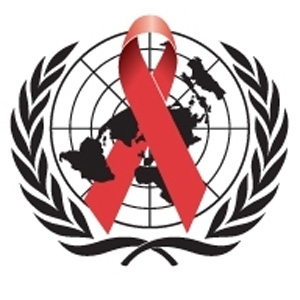As Philip Stevens of the London-based International Policy Network discusses in a short article recently printed in the Australian, this mentality is dangerous. Especially when it becomes embedded in a large, powerful organization such as the UN.
Stevens sees an eerie similarity between recent calls for the creation of a massive UN entity that would "coordinate advocacy and policy on climate change" and the creation of UNAIDS in 1996:
AIDS activists suddenly had a lavishly funded UN agency to support their political agenda, so governments would spend the billions they demanded. UNAIDS was also responsible for interpreting scientific data about the pandemic. Year after year, its supposedly scientific updates predicted devastating heterosexual pandemics all over the world, with alarmingly high existing HIV-AIDS infections.Two problems emerged from this. First, the new massive organization had an incentive to keep AIDS in the public eye, and maintain the perception of a looming disaster. This led to reports that ignored peer reviewed science and concentrated on extreme scenarios. We see similar behavior in mainstream reports purporting to represent climate science consensus. Stevens writes that:
UNAIDS' scientific reputation has crumbled. Since 2001, it has been forced to slash its estimates of the numbers of people infected for dozens of countries -- in the cases of Kenya and India by more than half.The second problem stems from the dominance of AIDS in the arena of public health in the developing world, where there are plenty of other serious problems:
AIDS now grabs a disproportionate amount of public money, consuming US23c of every aid dollar spent on global health, despite causing fewer than 6 per cent of deaths in developing countries. Obama has pledged 70 per cent for AIDS of all US global health spending next year: $US8.6bn ($9.5bn), totalling $US63bn over six years. Meanwhile, diseases that kill far more, such as diarrhoea, lack funding -- even though they cost only a few cents to treat.This is a really important and instructive example, but it also risks being misinterpreted. It does not mean that climate change/AIDS is not a serious problem. And Stevens is not asserting that climate change risk will decrease along a similar trajectory the global AIDS pandemics predicted in the late 90s.
The lesson here is about the links among institutions, science, and activism. The problem with UNAIDS was not just
Climate change is not the only kind of global change, and it is not the only environmental problem we face. Successful climate policy will not solve problems such as deforestation, hurricane damage, chemical pollution, suburban sprawl, and many others. But when was the last time you picked up the Environment page of a newspaper and found a story that didn't mention climate change?
I recommend reading all of Stevens' short, but very informative article.




Ryan -- Interesting post. I was actually just reading Epstein's "Impure Science" and was struck at some of the siimilarities between AIDS science and policy and climate science and policy. It seemed that the more clinical trials done to test drugs for HIV/AIDS more uncertainty and debate was created rather than less. One big difference, but one that may be instructive for the future of climate science and policy, was the relationship between activists and scientists. Well-organized activists dedicated themselves to learning the science of HIV/AIDS and the structure of clinical trials in order to influence the questions that were asked and how the trials were organized. Often, they wanted to simply "get drugs into people" and re-structure trails to reflect the "messiness" of real life rather than the "artificial" world of pure science. It seems to me that while climate change certainly has its activists (see Copenhagen) they, more the most part, are taking the science as a black box and just want to try to influence policy. In addition, climate being so global and diffuse, it's not very amenable to organizing a community that would actually be able to have the resources to do much about it. To the extent that it is or has, it seems that they are more concerned with questions regarding mitigation rather than adaptation (which would be the equivalent of dealing with the "messy" real world).
ReplyDeleteThanks Thad
ReplyDelete(and congrats on being commenter #1!)
I imagine part of the difference you describe stems from the fact that AIDS has very tangible consequences for the individual, literally at the body level. Sure, it's still a moral issue, but it's also a personal issue, and it pays to know the science inside and out. Suffering from AIDS is easily distinguishable from not suffering. That kind of distinction will never be possible with climate change at the body level, and it's pretty tough at the population level.